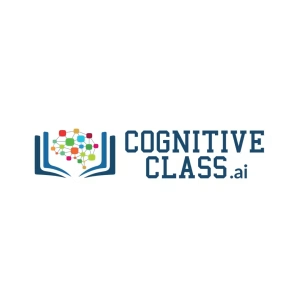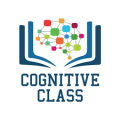- All
- Favorite
- Popular
- Most rated

Predictions: Regression for Car Mileage and Diamond Price
Learn regression techniques for predicting car mileage and diamond prices. Master statistical modeling, feature engineering, and evaluation metrics to create accurate predictions based on real-world data in the automotive and luxury sectors.

Geospatial APIs for Data Scientists and Application Devs
Discover the power of geospatial APIs for data scientists and application developers. Learn how to integrate spatial data into applications, perform geospatial analysis, and develop location-based insights for various industries.

Banking: Fundamentals of Data Analysis with Pandas
Get started with data analysis in banking using Pandas. Learn how to handle financial data, perform basic analysis, and create insights on banking operations, customer behavior, and market trends using Python and Pandas.

Analyze Forest Cover Loss by Wildfires with Geospatial APIs
Study how to analyze forest cover loss due to wildfires using geospatial APIs. Learn to assess and visualize the impact of fires on forest ecosystems and develop strategies for conservation and environmental protection.

Predict Sea-Rise Risks with Geospatial APIs
Learn how to predict sea-rise risks using geospatial APIs. Understand how to work with geospatial data to model sea level rise, assess flood risks, and make informed decisions about climate change impact and disaster preparedness.

Analyzing Spreadsheet Data with Python
Master analyzing spreadsheet data with Python. Learn how to manipulate, clean, and visualize data from Excel and CSV files using Python libraries like Pandas, and gain essential skills for data analysis in business and research contexts.

Plan Emission-Optimized Crew Routes and Schedules
Learn to plan emission-optimized crew routes and schedules. Leverage data analytics and optimization algorithms to reduce fuel consumption and minimize environmental impacts while ensuring operational efficiency and timely task completion.

Exploratory Data Analysis with Python
Dive into Exploratory Data Analysis (EDA) using Python. Learn the core EDA techniques for cleaning, visualizing, and summarizing data, and gain practical experience with Python libraries like Pandas, Matplotlib, and Seaborn.

Analyze Food Industry Refrigeration Emissions and Leaks
Learn to analyze refrigeration emissions and leaks in the food industry. Understand how data science techniques can help optimize refrigeration systems, reduce emissions, and improve sustainability in food processing and storage operations.

Freight Emission Calculator: Analyze and Optimize
Develop a freight emission calculator to analyze and optimize transportation emissions. Learn to use data analysis and machine learning to reduce the carbon footprint of freight logistics, maximizing efficiency and sustainability in supply chains.

Building a Physics-Informed Neural Network for realworld app
Discover how to build physics-informed neural networks (PINNs) for real-world applications. Learn how to integrate domain-specific knowledge with deep learning to solve complex scientific and engineering problems more effectively.

Emissions Calculator for Data Centers
Create an emissions calculator tailored for data centers. Learn to design a tool that tracks energy consumption, carbon footprint, and optimization strategies for reducing environmental impacts in cloud computing and IT infrastructure.

Analyze Weather Data to Calculate a Snowfall Removal Budget
Explore how to analyze weather data to calculate an accurate snowfall removal budget. Learn to use data analytics and forecasting models to predict snowfall patterns and optimize resource allocation for winter maintenance operations.

Exploratory Data Analysis (EDA) for Data Science and ML
Learn the fundamentals of Exploratory Data Analysis (EDA) for data science and machine learning. Master techniques for cleaning, visualizing, and understanding data to uncover insights, trends, and patterns that inform model-building decisions.

Analyze Environmental Impacts of Power Plant Fuel Choice
Study how different fuel choices for power plants impact the environment. Learn to analyze emissions, efficiency, and sustainability using data science and environmental modeling to help guide decision-making in energy production.

Data Privacy Fundamentals
Understand the fundamentals of data privacy in this essential course. Learn the principles of protecting personal data, the regulatory landscape (GDPR, CCPA), and best practices to ensure compliance and safeguard sensitive information.

Monitor Water Levels and Soil Moisture with Geospatial APIs
Learn how to monitor environmental factors such as water levels and soil moisture using geospatial APIs. Understand how to integrate API data into applications for real-time monitoring, weather prediction, and environmental management.

Build Netflix-like recommendation systems with Sklearn
Learn how to build recommendation systems similar to Netflix’s using Scikit-learn. Understand collaborative filtering, content-based recommendations, and hybrid models to create personalized suggestions for users.

Data Science Tools
Get hands-on with the essential tools of data science. Learn how to work with Python, R, SQL, and key data science libraries to analyze and manipulate data, and create powerful models and visualizations to drive business decisions.

Predict Bitcoin Close Prices using Foundational Models
Learn how to predict Bitcoin’s closing prices using foundational machine learning models. Understand the basics of time series forecasting and apply regression models to forecast cryptocurrency trends and investment opportunities.

Data Science 101
Start your journey into data science with this beginner-friendly course. Learn essential concepts, tools, and techniques in data analysis, and gain a foundational understanding of how data science powers decision-making across industries.

Data Science Methodology
Explore the methodologies used in data science. Understand the steps of the data science process, from problem identification and data collection to analysis, modeling, and insights generation, ensuring a structured approach to solving business problems.

Statistical Analysis and Visualization for Marketing
Dive into statistical analysis and visualization techniques for marketing. Learn how to analyze customer data, visualize trends, and use statistical methods to make data-driven marketing decisions that drive business growth.

Modelling and Basic Actuarial Calculation in Insurance
Learn how to model and perform basic actuarial calculations in the insurance industry. Understand the key techniques used in actuarial science to assess risk, estimate premiums, and manage financial strategies in insurance.
Comprehensive Guide to Cognitive Class
Overview of Cognitive Class: Cognitive Class, originally known as Big Data University, is an online platform renowned for delivering high-quality education in data science, AI, and other technology fields. This guide explores the key features, benefits, and impact of Cognitive Class, emphasizing how it empowers learners to gain valuable skills and advance their careers.Introduction to Cognitive Class
- What is a Cognitive Class? Cognitive Class is an educational platform offering a wide array of courses in data science, artificial intelligence (AI), and technology-related topics. Developed by IBM, it provides free access to resources aimed at helping individuals gain expertise in areas such as data analytics, machine learning, and cloud computing.
- Mission and Vision: Cognitive Class is dedicated to democratizing education by making advanced technological training accessible to everyone. The platform’s mission is to equip learners with the necessary skills and knowledge to thrive in the tech industry, thereby fostering a community of professionals capable of driving innovation and solving complex problems using data and AI.
Key Features of Cognitive Class
- Extensive Course Catalog: Cognitive Class offers a broad range of courses covering topics like data science, machine learning, AI, and cloud computing. These courses are designed to impart in-depth knowledge and practical skills, catering to learners at all levels, from beginners to advanced users.
- IBM-Developed Content: All courses on Cognitive Class are developed by IBM, leveraging the company's extensive industry expertise. This ensures that the content is not only relevant but also aligned with current industry standards, providing learners with high-quality instruction and practical insights.
- Free Access and Certification: Cognitive Class stands out by offering free access to its courses, making it an excellent option for individuals looking to enhance their skills without financial constraints. Additionally, learners can earn certifications upon completing courses, which can help validate their skills and improve career prospects.
Benefits of Using Cognitive Class
- High-Quality, Expert-Led Training: Courses on Cognitive Class are led by industry experts from IBM, ensuring that learners receive high-quality instruction grounded in extensive real-world experience. This expert-led approach equips learners with both theoretical knowledge and practical skills necessary for tackling real-world challenges.
- Accessible Education for All: By offering free access to its courses, Cognitive Class makes advanced technological education accessible to a global audience. This inclusivity helps bridge the gap in tech education and supports the development of a diverse and skilled talent pool.
- Career Enhancement and Development: Cognitive Class’s certification programs offer a significant boost to learners' resumes. By earning certifications, learners can validate their expertise, making them more attractive to employers and opening doors to new career opportunities in data science, machine learning, and AI.
Cognitive Class for Individuals and Organizations
- Skill Development and Mastery for Individuals: For individual learners, Cognitive Class provides an opportunity to develop and refine skills in data science, AI, and related technologies. The platform's courses are designed to offer practical knowledge and hands-on experience, enabling learners to apply their skills in real-world scenarios.
- Career Advancement: Cognitive Class certifications can enhance career prospects by providing recognized credentials that validate a learner’s expertise. These certifications can significantly improve job marketability and open up new career opportunities.
- Employee Training and Upskilling for Organizations: Organizations can utilize Cognitive Class to train and upskill their employees in areas such as data science, AI, and technology. The platform’s courses equip employees with valuable skills that can enhance performance and contribute to the organization’s success.
- Optimizing Data-Driven Strategies: By integrating Cognitive Class’s training into their development programs, organizations can enhance their data-driven strategies and technological capabilities, driving growth and improving overall effectiveness.
Success Stories and User Feedback
- Impact on Learners and Professionals: Cognitive Class has significantly impacted many learners and professionals by providing the skills and knowledge needed to succeed in the tech industry. Success stories highlight how individuals have leveraged the platform to advance their careers and achieve outstanding results.
- User Testimonials and Feedback: Feedback from users of Cognitive Class underscores the platform’s value and effectiveness. Testimonials frequently commend the quality of the courses, the expertise of the instructors, and the practical insights gained, reinforcing the platform’s role in delivering high-quality education.
Getting Started with Cognitive Class
- Creating an Account and Exploring Courses: Getting started with Cognitive Class is simple. Users can create a free account and explore the extensive course catalog, selecting courses that align with their learning goals. The platform’s user-friendly interface makes it easy to navigate and access educational resources.
- Choosing the Right Courses: To get the most out of Cognitive Class, learners should choose courses that match their skill level and career objectives. With topics ranging from introductory to advanced levels, users can tailor their learning experience to meet their specific needs.
- Utilizing Support and Resources: Cognitive Class offers additional support and resources to help learners succeed, including course materials, community forums, and expert guidance. Leveraging these resources can enhance the learning experience and maximize the benefits of the training.

